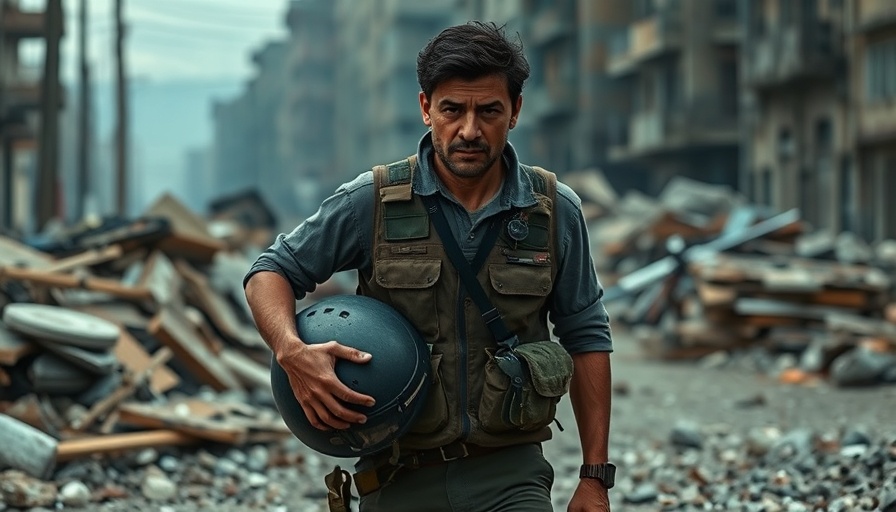
The Urgent Call for Accountability in Gaza's Press Freedom Crisis
The recent condemnation by Reporters Without Borders (RSF) of the killings of journalists in Gaza has brought the critical issue of press freedom to the forefront of international discourse. Five Palestinian media workers tragically lost their lives in an attack on the NASA hospital in Kanunas, inciting global outrage and reaffirming the urgent need for accountability in the ongoing conflict. As the situation escalates, it becomes evident that there is a significant gap in the protection of journalists, particularly in war zones. RSF firmly asserts that these journalists were deliberately targeted, which highlights a dangerous trend where reporting the truth increasingly comes at a fatal cost.
In 'Reporters without Borders condemns latest killing of journalists in Gaza,' the discussion dives into the alarming trend of targeted violence against media personnel, exploring key insights that sparked deeper analysis on our end.
The Reality of Reporting in Conflict Zones
For journalists covering conflicts, particularly in volatile regions like Gaza, the risks have become alarmingly high. Historical context offers a chilling backdrop to the current crisis: since the onset of hostilities, over 200 journalists have been killed, with approximately 40 being targets rather than collateral damage. This phenomenon is exacerbated by practices like the double-tap strike— a military tactic that creates a hazardous environment for reporters rushing to cover breaking news. Such actions reveal the systemic issues confronting media freedom in regions plagued by violence.
The International Community's Responsibility
The question looms large: why is the international community so silent in the face of these crimes? Press freedom is enshrined in international law, yet the lack of action against the ongoing violence against journalists in Gaza calls into question the commitments made by global leaders to uphold these rights. As evidenced by the RSF's push for an emergency United Nations Security Council meeting, there is a pressing need for unified global action to address the public impunity surrounding attacks on journalists.
Understanding the Political Dynamics
The political landscape complicates matters further as Israel continues to restrict the flow of international media into Gaza. Reports take on a more significant dimension when considering how narratives can be manipulated in the absence of independent journalism. With limited access, the humanitarian plight is often overshadowed by proposed military justifications for violence, creating a narrative that requires critical examination. A balanced understanding of these dynamics is necessary for fostering informed public discourse and advocacy around the human rights of journalists in conflict zones.
Call for Effective Solutions
Recognizing the dire situation for Palestinian journalists necessitates immediate action. RSF emphasizes three crucial steps for improvement: evacuating those in peril, facilitating greater press access to Gaza, and eradicating the cycle of impunity for crimes committed against media personnel. Collaboration between international organizations, local media, and diplomatic entities can pave the way for substantive changes. Each of us can contribute to the call for action by addressing these issues through advocacy and awareness campaigns.
Steps Toward Greater Advocacy
Advocacy is powerful. Here are actionable insights for professionals and concerned citizens alike:
- Raise Awareness: Share credible information about the situation of journalists in Gaza through social media and professional networks.
- Support Press Freedom Organizations: Engage with organizations like RSF, aiding their missions through donations and participation in awareness events.
- Intensify Calls for Accountability: Urge your representatives to advocate for stronger protections for journalists globally, recognizing them as essential in safeguarding democracy.
It’s critical that the global dialogue surrounding press freedom includes concrete actions that can support journalists in dangerous environments. Their work is not merely a duty but a pillar of civil society.
In conclusion, as echoed by RSF and bolstered by the voices from within the journalist community, we must remain vigilant and proactive in our quest to defend the rights of those who courageously report the truth. Understanding the sacrifices made by journalists in conflict zones like Gaza can galvanize our commitment to action.
 Add Row
Add Row  Add
Add 




Write A Comment